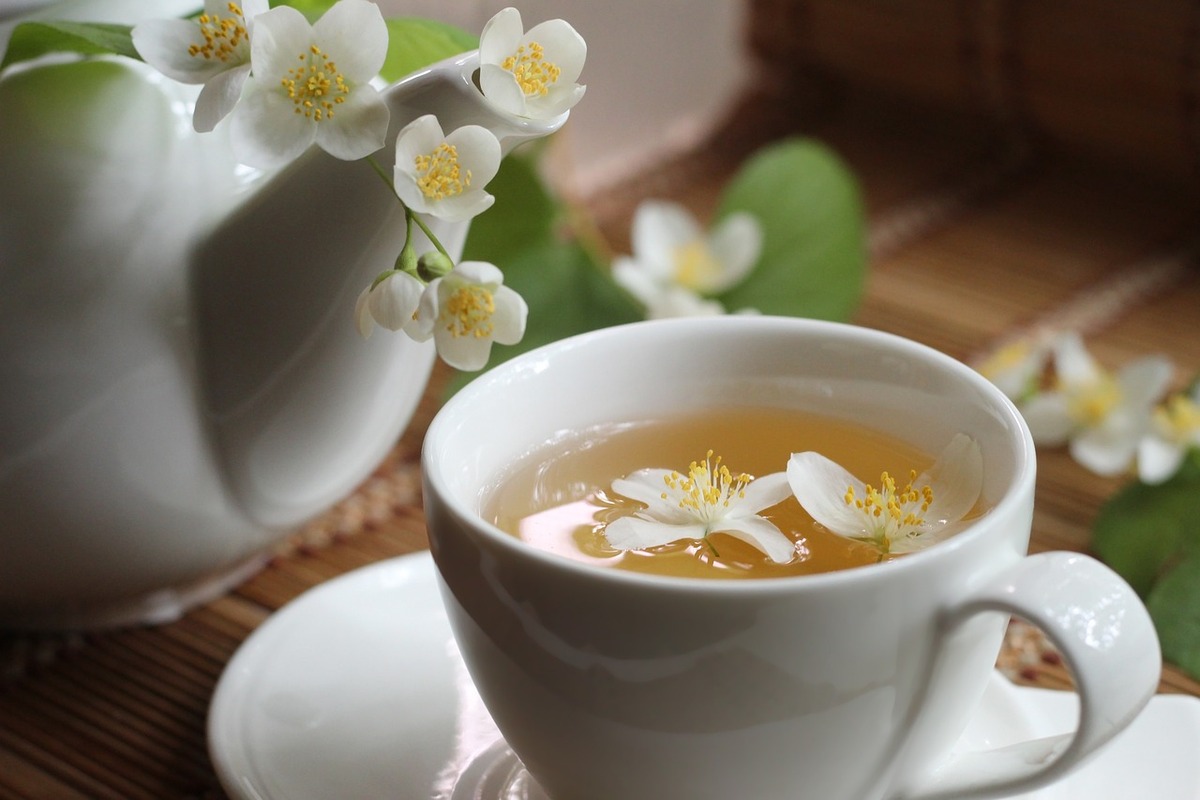
Newsletter Subscribe
Enter your email address below and subscribe to our newsletter

Enter your email address below and subscribe to our newsletter

As a tea lover, you might have come across various types of tea, but have you ever tasted jasmine tea?
Jasmine tea is a popular drink made from green tea leaves and jasmine flowers. It is usually served hot and has a distinct floral aroma and taste.
In this article, we will explore all the possible flavors, aromas, and impressions that are possible with jasmine tea.
In This Article

Jasmine tea is a type of tea that is made by combining green tea leaves with jasmine flowers.
The jasmine flowers are picked in the morning when they are still closed and then placed in layers over the green tea leaves.
The tea leaves absorb the fragrance of the flowers, giving the tea a unique floral aroma and taste.
Jasmine tea is available in different forms, such as loose-leaf tea, tea bags, and pearls.
Jasmine tea pearls, also known as dragon pearls, are hand-rolled green tea leaves infused with jasmine flowers.
When hot water is poured over them, they unfurl, revealing the jasmine petals inside.
Jasmine tea has a delicate floral aroma that is similar to the scent of jasmine flowers.
The taste is mild, slightly sweet, and refreshing, with a subtle hint of bitterness from the green tea leaves.
Jasmine tea has a light and clean aftertaste that leaves your mouth feeling refreshed.
When you taste jasmine tea, you will notice that the floral taste is not overpowering.
It’s a subtle and delicate flavor that is perfect for those who are looking for a gentle and refreshing tea.
The combination of green tea leaves with jasmine flowers creates a harmonious balance that is both smooth and fragrant.
Jasmine tea can be made using different types of tea bases such as green tea, black tea, or white tea. The flavor profile can vary depending on the type of tea used as a base.
Jasmine tea can also be enjoyed with milk or sweeteners such as honey or sugar. Adding milk to jasmine tea will create a creamier and thicker texture while adding sweeteners will enhance the flavor and make it sweeter.
Jasmine tea is a great choice for those who are sensitive to caffeine. The caffeine content in jasmine tea is relatively low, usually around 20-30 mg per cup, compared to black tea, which can have as much as 60 mg per cup.
However, the caffeine content may vary depending on the type of tea base used to make the jasmine tea.
Jasmine tea not only has a refreshing taste, but it also has several health benefits.
As a chef, I have experimented with different flavors and combinations. When it comes to jasmine tea, I appreciate its delicate and refreshing taste.
Jasmine tea has a unique flavor profile that is difficult to replicate. The combination of green tea leaves and jasmine flowers creates a perfect balance that is both smooth and fragrant.
When I serve jasmine tea, guests often comment on the delicate floral aroma and subtle taste.
I have found that pairing jasmine tea with a light and delicate desserts such as macarons or fruit tarts is the perfect way to enjoy its flavors.
In conclusion, jasmine tea is a delightful and refreshing drink that has a subtle yet distinct flavor. It is perfect for those who are looking for a gentle and fragrant tea.
Whether you prefer it hot or iced, with milk or sweeteners, jasmine tea is a delicious and healthy beverage that you should definitely try.
Yes, jasmine tea has caffeine, but the amount is much lower than black tea or coffee.
Yes, you can drink jasmine tea with milk and sweeteners. It will enhance the flavor and make it sweeter.
Jasmine tea may help to boost metabolism and promote weight loss, but it should be consumed as part of a balanced diet and exercise regime.